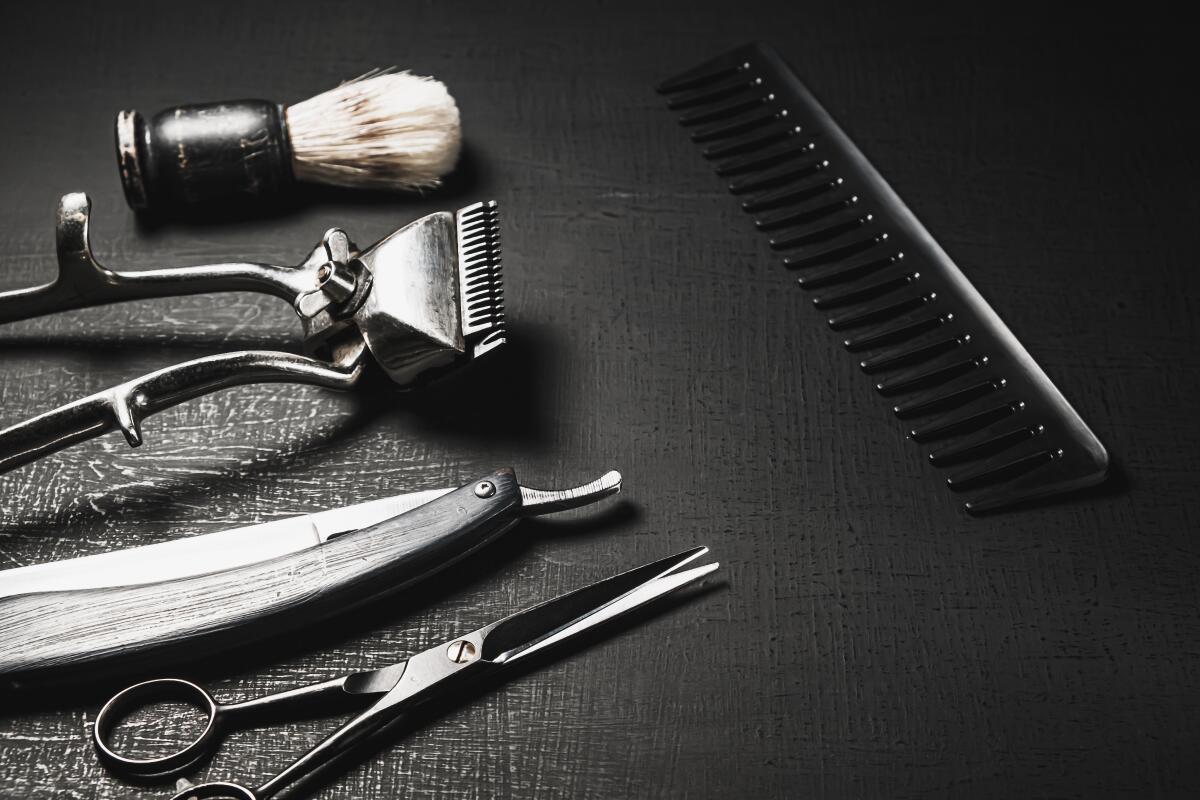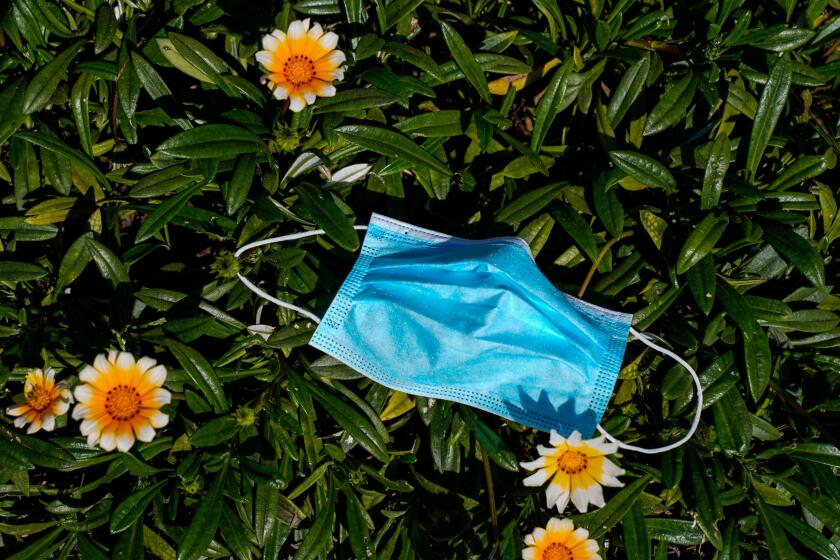Op-Ed: Is my pandemic beard a ‘project’? Or a sign that I stopped trying?

Over the last two years of COVID-19 my unshaven beard marked the movement of time. I even began to think of it as a kind of project. But while I wasn’t shaving, others were remodeling basements or knitting fisherman’s sweaters or watching Khan Academy so that they could somehow teach their kids Common Core Math.
I can see now that my not shaving was more like watching snow build up on my roof. Or not dusting. Or sweeping. Or caring. My beard is not a project — it is what happened when I stopped trying. And I spent a big chunk of this pandemic not trying.
Even as I call for a national period of shaving and atonement, understand that I’m not talking to those of you who have grown your pandemic beards with intention — those of you with actual Beard Plans — or those of you who’ve lived bearded for years. I’m not calling to the Alpha Beards among us: the LeBrons, the Drakes. Letterman. Nor the clerics, rabbis, gurus — the holy hair growers who tend beards like righteous gardens.
I’m talking to those of you who, like me, simply gave up.
I worry we will forget how exciting it can be to hold a pandemic baby for the first time, to laugh with friends in person, to walk the dog without a mask.
My beard is evidence that I gave up. But there’s other evidence, too. There is a swath of resignation marked by a mountain of empty Amazon boxes in my hallway. My shower ledge is littered with near-empty shampoo bottles, each not yet drained enough to recycle, but not full enough to flow with sufficient momentum. I just keep buying fresh bottles, hoping that one day I’ll have the determination needed to get the final handfuls out.
Worse, since I never bothered to buy a proper beard grooming kit, I’ve taken to trimming mine with my dog’s electric clippers. If my wife has noticed, she hasn’t said anything. But maybe she’s given up, too? It’s hard to say. She can’t grow a beard.
During World War I our troops headed for the trenches of Europe with a clever new tool issued to them by the U.S. government: the Gillette safety razor. Three million razors and 32 million blades were supplied to American soldiers. I’d like to think that even if our troops hadn’t been ordered to shave, they would have cared enough to do it daily, presenting a united American face, perhaps tired, but smooth, looking like men committed to a common cause.
In 1945 both of my grandfathers returned to the U.S. after serving in World War II. As far as I know, they both shaved — without fail — every day of their lives from that time on. My mother’s father had sailed for Europe in 1944 and soon was captured by the Germans in Northeastern France, spending the rest of the war in Stalag IX-B, a prison camp noted for its brutal conditions, wretched soup and lack of barbers.
My paternal grandfather shipped out on an attack transport in the Pacific where his vessel avoided all but one kamikaze plane. The Japanese hit in the early evening and I imagine that despite being surrounded by killed, dying and injured servicemen, my grandfather — like every other sailor on that ship — would have gotten up the next morning and shaved before gathering to bury the dead at sea.
These were men who would have gotten all the shampoo out of every bottle.
My Russian-Ukrainian family spoke to one another in Russian. Until, at the end of his life, my grandfather chose to speak solely in Ukrainian.
One of my grandfathers was a Democrat, the other a Republican, although there wasn’t much political daylight between them. Sometimes they supported the same candidates. More often they didn’t. They didn’t talk politics with each other much, although I do know that after surviving the war neither ever had anything good to say about politicians bent on wielding blind force. They were men who had seen more than anyone should ever have to see. And they agreed that they didn’t have to agree. And they started every morning the same way — lathering up with a bowl and a badger hairbrush.
My grandfathers were of a generation that didn’t tend to wallow. As I consider the time I lost — and the times when I may have given up — in these last two years, I think about them and all the unknowns that will come. And then I think it’s time for a shave.
George Rogers is a teacher and writer living in New York.
More to Read
A cure for the common opinion
Get thought-provoking perspectives with our weekly newsletter.
You may occasionally receive promotional content from the Los Angeles Times.












